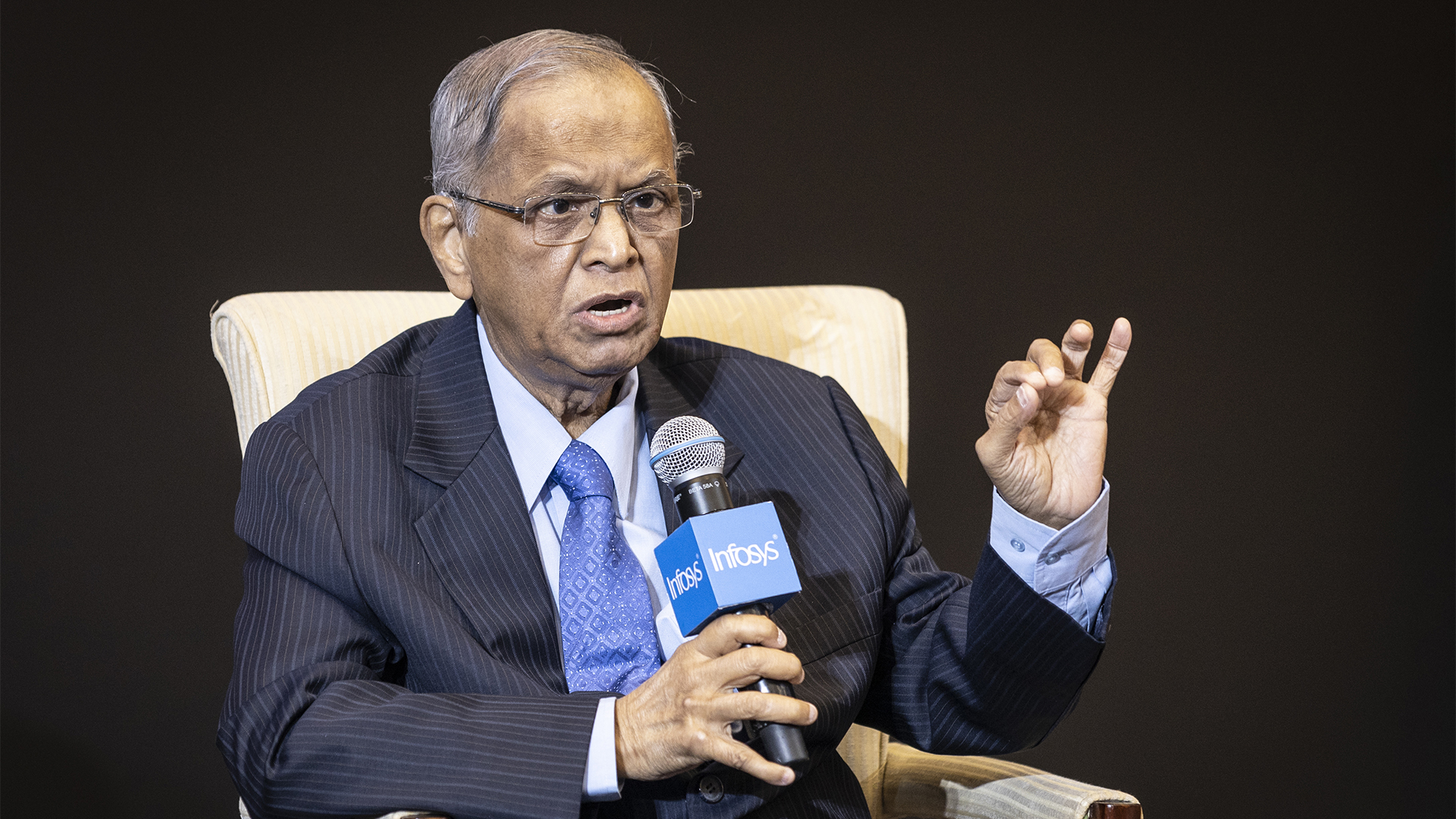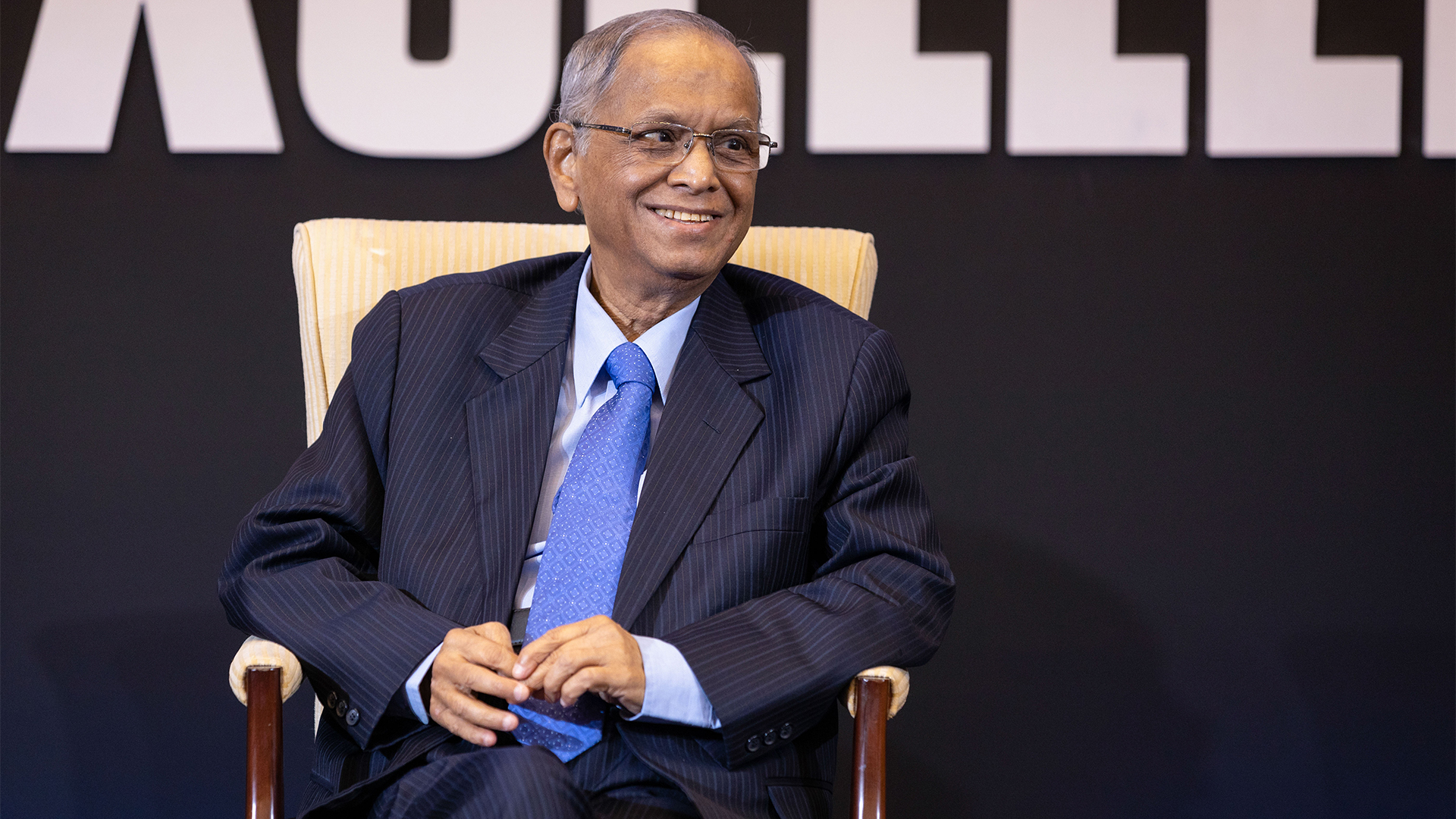Infosys co-founder repeats calls for a 70-hour work week
Narayana Murthy argues everyone working hard is the only way India can succeed


Forget a four-day working week, Infosys co-founder Narayana Murthy has again called for young Indian workers to spend 70 hours a week at work.
The debate in India happens at a time of upheaval in the global workforce, particularly around hybrid working and some companies impose return to office (RTO) mandates in the wake of the COVID pandemic.
At the same time, ideas like shorter working weeks are being trialed, largely successfully.
But Murthy believes more work is needed in India at least to help the country's economic growth.
"Once we compare ourselves with the best global companies, I can tell you we Indians have a lot to do," he said at the Indian Chamber of Commerce centenary, according to CNBC, claiming that 800 million Indians live in poverty.
"If we are not in a position to work hard, then who will work hard?"
Beyond working more hours, Murthy has called for the government to stay out of business.
Sign up today and you will receive a free copy of our Future Focus 2025 report - the leading guidance on AI, cybersecurity and other IT challenges as per 700+ senior executives
"The government has absolutely no role in entrepreneurship," he said. "I also realized entrepreneurs build a nation as they create jobs, they create wealth for their investors and they pay taxes.”
Long-held beliefs
It isn't the first time Murthy has called for longer hours for Indian workers. Last month, he told CNBC that he doesn't believe in work-life balance and thinks the shift from a six-day work week to five in 1986 was “bad for the country."
In February 2023, he called out Indians for working from home, calling it a trap and accusing them of working multiple jobs.
Months later in October 2023, he urged workers to voluntarily work 12-hour days for the next few decades so that India can become a top economic powerhouse; such work would need to be voluntary, as forcing such long hours is illegal in India.
He reiterated his views in January, saying he didn't miss time with his children as quality was more important than quantity.
Hours versus productivity
Long working hours doesn't necessarily result in high GDP for a country, either.
Figures from Our World In Data show it's more about development levels and industry — countries like India and Bangladesh already work longer hours than the West, for example, but have a lower GDP per capita.
Murthy's argument centers around the belief that India needs to be more like China, which has average annual working hours per worker of 2,169 with GDP per capita of $14,129.
RELATED WHITEPAPER

In comparison, Indians currently work 2,123 hours annually on average for $6,711 GDP per capita — suggesting hours worked has little to do with economic prosperity.
Alternative research also contradicts claims that working longer hours is better for economic prosperity and productivity. A study from Stanford University, for example, showed that working more than 49 hours a week leads to a reduction in workforce productivity.
Freelance journalist Nicole Kobie first started writing for ITPro in 2007, with bylines in New Scientist, Wired, PC Pro and many more.
Nicole the author of a book about the history of technology, The Long History of the Future.
-
 Most data centers are built in unsuitable climates – and it’s seriously impacting efficiency
Most data centers are built in unsuitable climates – and it’s seriously impacting efficiencyNews Research shows that many data centers are in environments that are too hot, potentially risking safety
-
 Amazon says Russian-backed threat groups were responsible for multi-year attacks on edge devices
Amazon says Russian-backed threat groups were responsible for multi-year attacks on edge devicesNews Russian-backed hacker groups are exploiting misconfigured edge devices – now preferring that tactic over hunting down traditional vulnerabilities to gain access to company networks.

